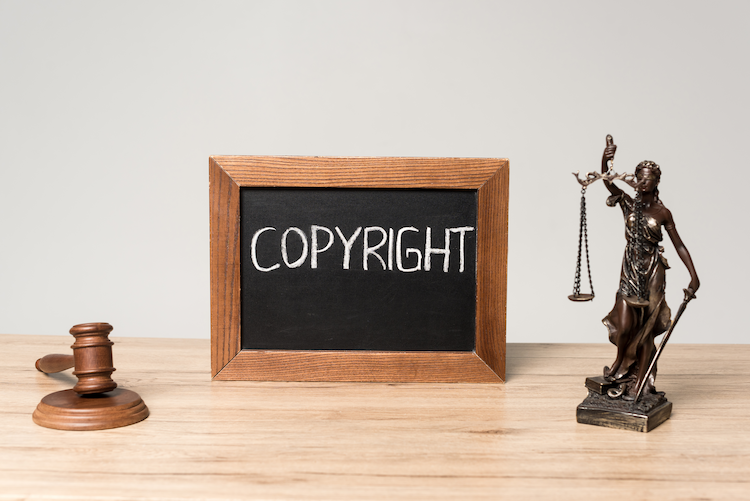SCOTUS Holds No Time Limit for Damages Under Copyright Act

In Warner Chappell Music, Inc. v. Nealy, 601 U.S. ____ (2024), the U.S. Supreme Court held that the Copyright Act entitles a copyright owner to obtain monetary relief for any timely infringement claim, no matter when the infringement occurred. The Court did not address when copyright infringement claims accrue with regard to the statute of limitations.
Facts of the Case
Under the Copyright Act, a plaintiff must file suit “within three years after the claim accrued.” Lower courts typically rely on one of two tests to determine when a claim accrues. Under the occurrence rule, a copyright claim “accrues” when “an infringing act occurs.” Under the so-called discovery rule, a claim accrues when “the plaintiff discovers, or with due diligence should have discovered,” the infringing act. That rule enables a diligent plaintiff to raise claims about even very old infringements if he discovered them within the three years prior to suit.
In this case, respondent Sherman Nealy invoked the discovery rule to sue Warner Chappell Music for copyright infringements going back ten years. Nealy argued that his claims were timely because he first learned of the infringing conduct less than three years before he sued. In the District Court, Warner Chappell accepted that the discovery rule governed the timeliness of Nealy’s claims. However, it argued that, even if Nealy could sue under that rule for older infringements, he could recover damages or profits for only those occurring in the last three years. The District Court agreed. On interlocutory appeal, the Eleventh Circuit Court of Appeals reversed, rejecting the notion of a three-year damages bar on a timely claim.
Supreme Court’s Decision
By a vote of 6-3, the Supreme Court affirmed. It held thatthe Copyright Act entitles a copyright owner to recover damages for any timely claim.
“In this case, we assume without deciding that a claim is timely un- der that provision if brought within three years of when the plaintiff discovered an infringement, no matter when the infringement happened,” Justice Elena Kagan wrote. “We then consider whether a claim satisfying that rule is subject to another time-based limit— this one, preventing the recovery of damages for any infringement that occurred more than three years before a lawsuit’s filing. We hold that no such limit on damages exists.”
In reaching its decision, the majority noted that the Copyright Act’s statute of limitations establishes a three-year period for filing suit, which begins to run when a claim accrues. It went on to find that the provision establishes no separate three-year limit on recovering damages.
“If any time limit on damages exists, it must come from the Act’s remedial sections. But those provisions likewise do not aid a long-ago infringer. They state without qualification that an infringer is liable either for statutory damages or for the owner’s actual damages and the infringer’s profits, “Justice Kagan explained. “There is no time limit on monetary recovery. So a copyright owner possessing a timely claim for infringement is entitled to damages, no matter when the infringement occurred.”
The Supreme Court went on to find that its decision in Petrella v. Metro-Goldwyn-Mayer, Inc., 572 U.S. 663 (2014)also does not support a three-year damages cap. In that case, the Court noted that the Copyright Act’s statute of limitations allows plaintiffs “to gain retrospective relief running only three years back from” the filing of a suit. “Taken out of context, that line might seem to address the issue here. But in making that statement, we merely described how the limitations provision works when a plaintiff has no timely claims for infringing acts more than three years old,” Justice Kagan wrote. “That was the situation in Petrella.”
Justice Kagan distinguished this case, noting that Nealy invoked the discovery rule to bring claims for infringing acts occurring more than three years before he filed suit and that the Court granted certiorari on the assumption that such claims may be timely under the Act’s limitations provision. “If Nealy’s claims are thus timely, he may obtain damages for them,” she wrote. “The Copyright Act contains no separate time-based limit on monetary recovery.”
Justice Kagan emphasized that the Court did decide whether a copyright claim accrues when a plaintiff discovers or should have discovered an infringement, rather than when the infringement happened. Notably, that issue is before the Court in a pending petition for certiorari in Hearst Newspapers, LLC v. Martinelli.
Previous Articles
SCOTUS Decision in Bowe v. United States Is First of the 2026 Term
by DONALD SCARINCI on February 5, 2026
In Bowe v. United States, 607 U.S. ___ (2026), the U.S. Supreme Court held that Title 28 U.S.C. § ...
SCOTUS Rules State Can’t Immunize Parties from Federal Civil Liability
by DONALD SCARINCI on January 29, 2026
In John Doe v. Dynamic Physical Therapy, LLC, 607 U.S. ____ (2025) the U.S. Supreme Court held that...
Supreme Court to Address Racial Discrimination in Jury Selection
by DONALD SCARINCI onWhile the U.S. Supreme Court has concluded oral arguments for the year, it continues to add cases t...
The Amendments
-
Amendment1
- Establishment ClauseFree Exercise Clause
- Freedom of Speech
- Freedoms of Press
- Freedom of Assembly, and Petitition
-
Amendment2
- The Right to Bear Arms
-
Amendment4
- Unreasonable Searches and Seizures
-
Amendment5
- Due Process
- Eminent Domain
- Rights of Criminal Defendants
Preamble to the Bill of Rights
Congress of the United States begun and held at the City of New-York, on Wednesday the fourth of March, one thousand seven hundred and eighty nine.
THE Conventions of a number of the States, having at the time of their adopting the Constitution, expressed a desire, in order to prevent misconstruction or abuse of its powers, that further declaratory and restrictive clauses should be added: And as extending the ground of public confidence in the Government, will best ensure the beneficent ends of its institution.





